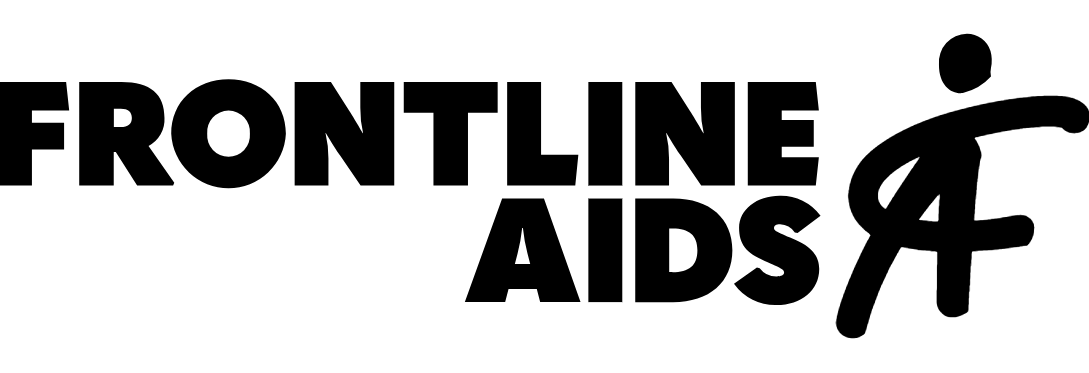Frontline AIDS
Lois Chingandu, Director External Relations
I am a Gender and HIV activist and have worked for over 25 years in Africa and globally, to end HIV, and to ensure women and girls have access to comprehensive SRHR information and services. I have worked to unlock policy and socio-cultural barriers that impede women from accessing SRHR, including the right to safe abortion. The SheDecides movement speaks to the work I have spent most of my life championing and now, more than ever, we must come together to uphold, protect, and advance the rights of women and girls in all their diversity.
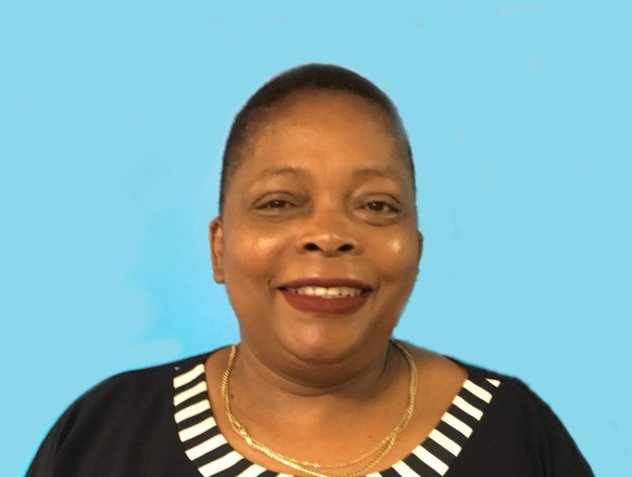
Why is bodily autonomy a priority for Frontline AIDS? What other issues are a priority?
Frontline AIDS’ vision is for a world where people living with and most affected by HIV can lead long, healthy, dignified, and productive lives, free from stigma, discrimination, and violence. Working with partners across 100 countries, we promote bodily autonomy, gender equality and health and human rights advocacy and programming, in an effort to ensure young people, including young key populations, have access to SRHR, human rights and HIV services and information.
Frontline AIDS is the largest global partnership of civil society and community-led organisations working together to end AIDS. We support and undertake advocacy at the community, national, regional and global levels, aimed at increasing access to HIV and SRHR services and to advancing the health, human rights and leadership of women and girls, young people and key populations.
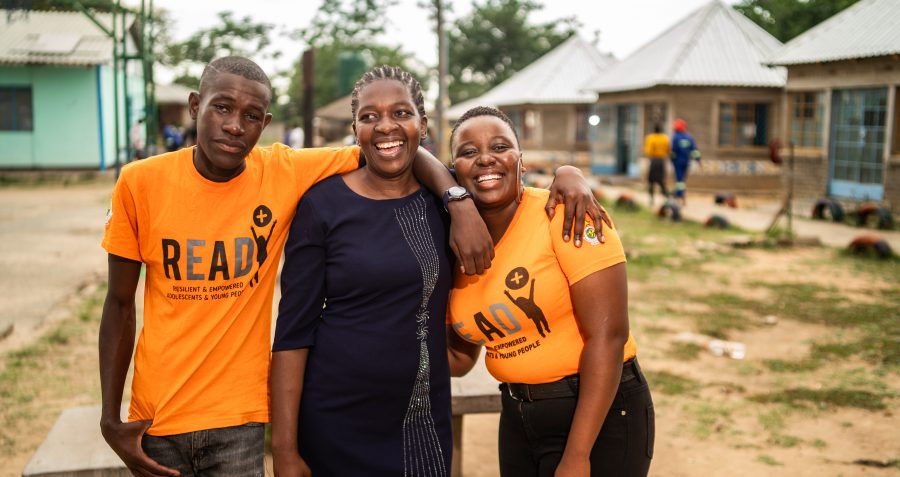
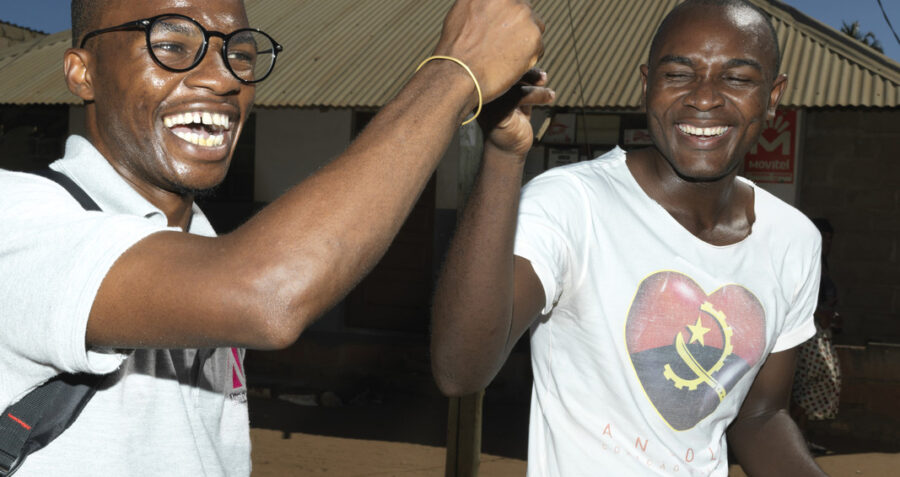
How we are working so SheDecides
Frontline AIDS is the largest global partnership of civil society and community-led organisations working together to end AIDS. We support and undertake advocacy at the community, national, regional and global levels, aimed at increasing access to HIV and SRHR services and to advancing the health, human rights and leadership of women and girls, young people and key populations.
Leveraging the power of our global partnership to speak out in support of bodily autonomy and gender equality (ongoing)
We remain firmly opposed to the Mexico City Policy. Our research from 2018 shows how the reinstatement of this policy disrupted HIV/SRHR programmes and compromised access to services, with a significant impact on the most marginalised.
The overturn of Roe vs Wade reignites these concerns. We fear this development could see our partners - once again - being forced to make impossible choices between providing abortion-related care and human rights-based SRH services, and risking being refused US funding for HIV prevention and treatment. It also sets a worrying precedent for other countries and opens the door to a revocation of other hard-won gains on civil rights, including same sex marriage legislation.
We will continue to be vocal, taking coordinated action to counter these narratives, and advance support for bodily autonomy, human rights and SRHR.
Read More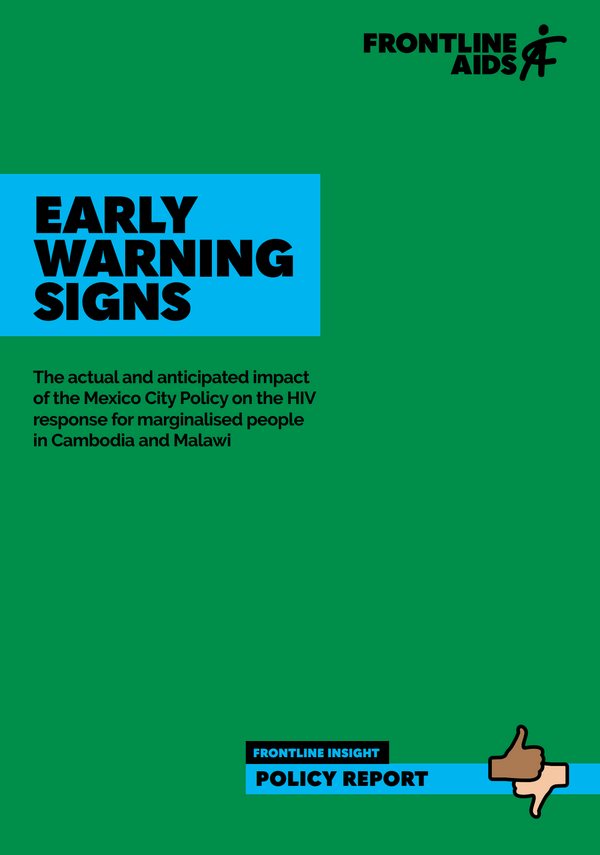
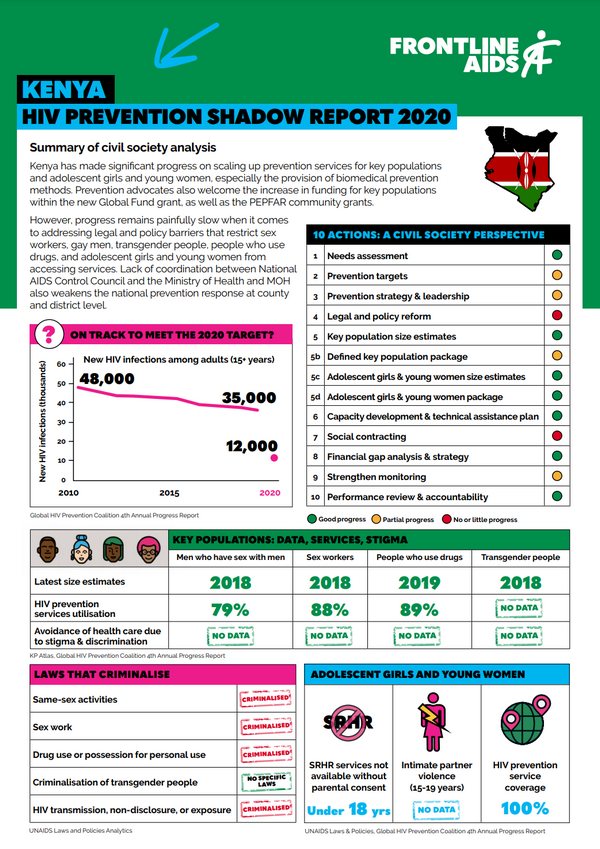
Driving community-led accountability for global HIV prevention targets and goals (2017- present)
Frontline AIDS is supporting diverse, community led coalitions in 7 countries to collectively hold governments to account on the global targets, as outlined in the 2021 UN Political Declaration on HIV/AIDS and the 2025 Global HIV prevention Road Map.
Nationally, we’re supporting partners to generate community-led data and track progress against the 10 Actions in the 2025 Road Map, with a strong emphasis on addressing structural barriers, including addressing harmful gender norms, tackling GBV and creating more enabling environments. We are also using our voice within the Global HIV Prevention Coalition to catalyze change – especially around the 10-10-10 targets (which speak directly to bodily autonomy).
Read MoreMobilising Support for Comprehensive Sexuality Education in Eastern and Southern African (ESA) (2021- present)
In June 2021, UNESCO selected Frontline AIDS and LVCT Health to mobilise civil society across East Africa and counter opposition, ahead of the renewal of the ESA Ministerial Commitment on CSE.
We held a series of regional consultations focused on earlier commitments. We developed a regional “Call to Action” to amplify and strengthen civil societies voice within this process - which was endorsed by over 270 organisations. The call to action was used to influence the final draft and build support among national governments.
We’re now working with regional networks to convene a civil society platform to drive accountability and track the delivery of this Commitment, including influencing the new results and accountability framework.
Read More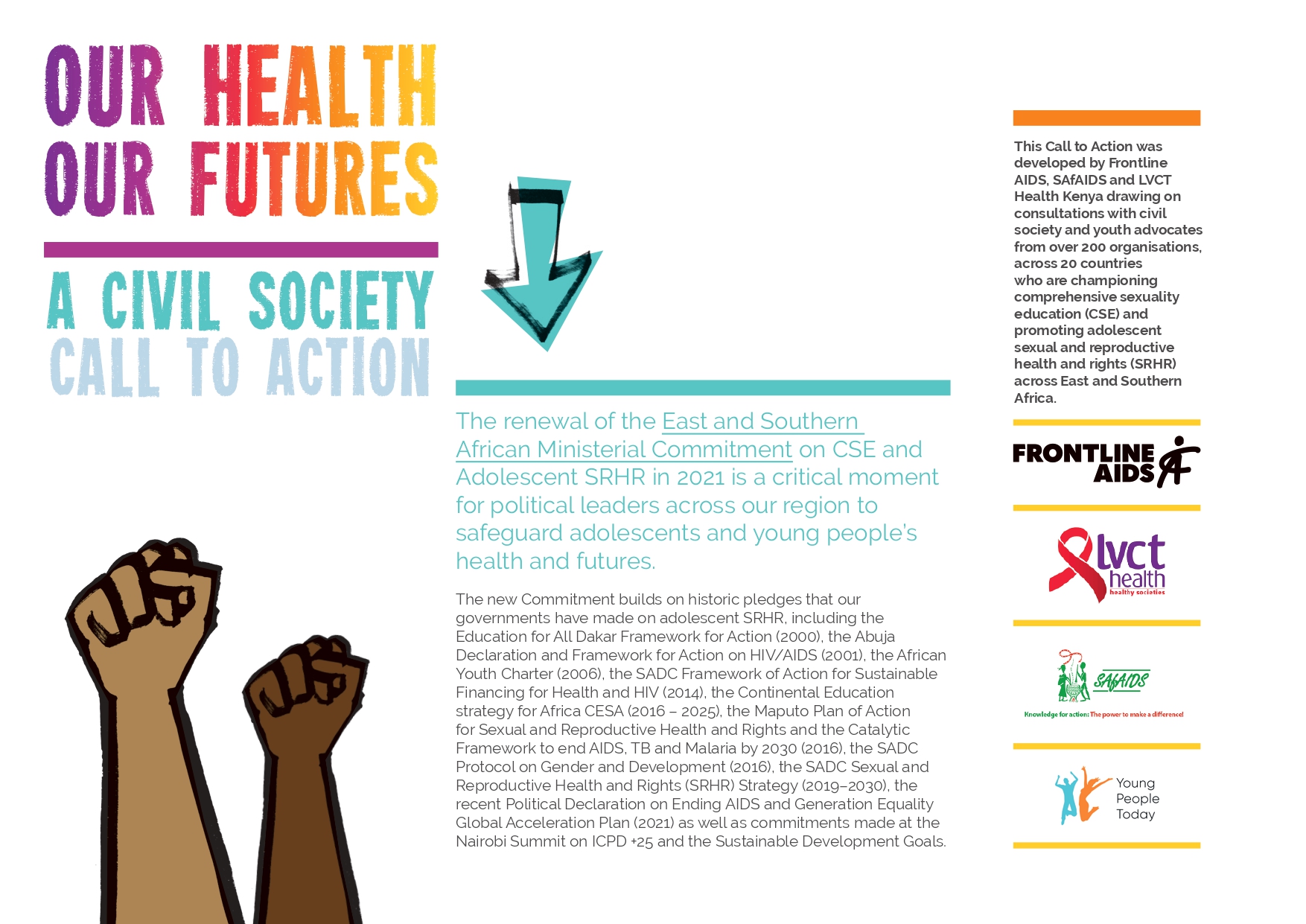
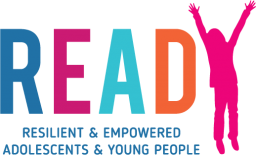
Resilient and Empowered Adolescents and Young people (READY) Programme II (2021- 2026)
The READY+ II programme is currently being implemented in 7 countries across Africa. It aims to reach 35,614 adolescents and young people living with or most affected by HIV, supporting them to become more resilient, empowered, knowledgeable - with the aim of achieving bodily autonomy and realising their SRHR rights. At its core is the READY movement - led by the Global Network of Young People living with HIV (Y+ Global), which supports young people to access policy-making spaces and collectively influence decisions that affect their health and to act together to advance bodily
Read MoreThe Sexual and Reproductive Health and Rights Umbrella Programme (2016-2023)
This programme seeks to improve SRHR and HIV outcomes in Uganda and works in collaboration with civil society organisations to increase access and use of quality, rights-based, and integrated SRHR and HIV services. It also aims to foster enabling environments for young people in all their diversity. This includes advocacy at the local level to improve access to SRHR services and commodities and to increase the meaningful involvement of young people in service delivery. This advocacy work is now being co-led by a cadre of young advocates who have been trained and supported to lead this work. The programme strives to use gender-transformative approaches and works directly with communities and local leaders to challenge GBV and gender norms that pose a barrier to SRHR.
Read More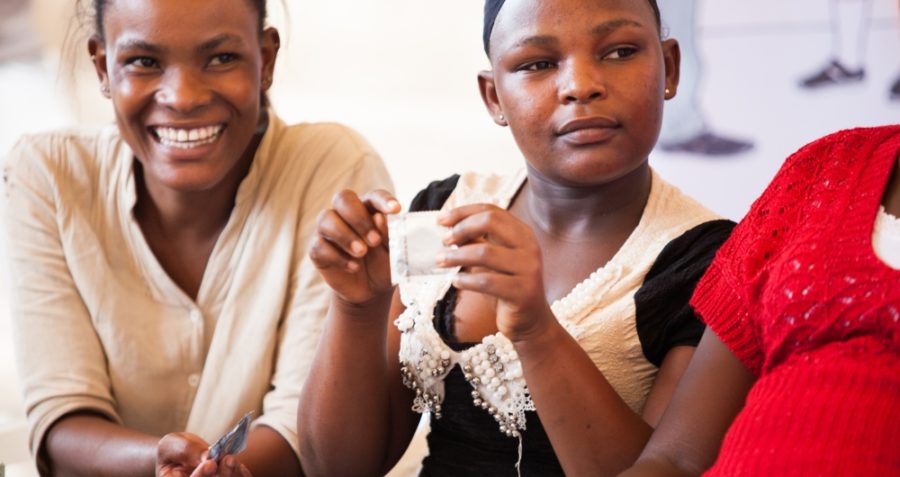
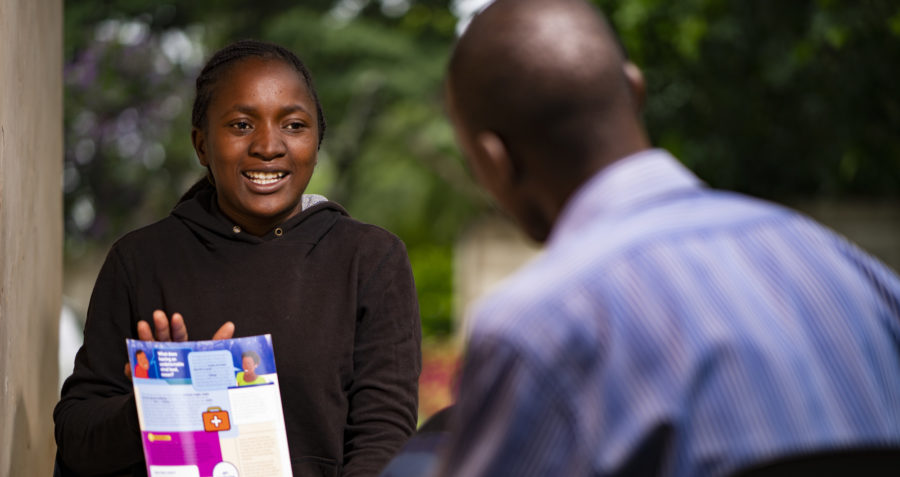
Empowered for Change (2021-present)
Empowered for Change was an innovative, 12-month training and mentoring programme for young people living with and most affected by HIV in Uganda and Kenya. The programme equipped them with the skills to speak out on issues most affecting them, including increasing access to SRHR services, challenging discriminatory attitudes, ending impunity for gender-based violence (GBV), and countering opposition to sexuality education. We supported them to collect data and develop communications to change hearts and minds and highlight examples of progress. The advocates secured some fantastic results at district level – including a police directive banning the police from charging survivors of gender-based violence for related examinations. We’re continuing to work alongside these ambitious young advocates to hold local government to account and advance bodily autonomy.
Read MoreAbout Frontline Aids
Together with our partners, we have been on the frontline of the world’s response to AIDS for 30 years. We were founded in 1993 as the International HIV/AIDS Alliance to support the work of existing community-led organisations responding to HIV and AIDS. We have a rich history of working with partners to reach marginalised communities. Today, our global partnership works in more than 100 countries to support local, national and global community action on HIV, health and human rights.
Our mission is to support community-led organisations to break down social, political, and legal barriers to create a future free from AIDS. Frontline AIDS partners innovate and work across six action areas to achieve this. The AIDS response began in communities, both at country and global level. Communities shoulder the burden of pandemics, and local knowledge and leadership is critical to finding effective and sustainable solutions to end them.
We commit to become an anti-racist organisation and strive to ensure that power and leadership sits locally and nationally with the communities that are at the heart of our partnership. We are also continually reducing our carbon emissions and are committed to achieving net zero by 2050.
Read More